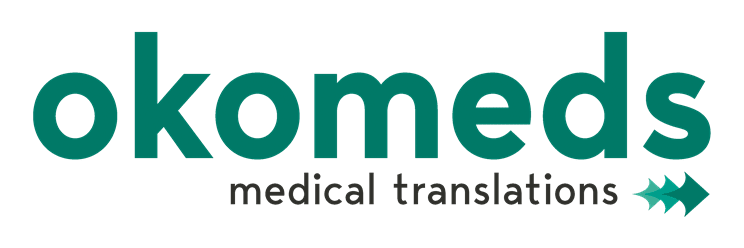
01 Oct 6 different types of medical documents
Medical translators can work with different kind of medical documents. Medical documentation includes a wide range of information that is essential for patient care and treatment. In the field of medical translation, understanding the different document types is essential to ensure effective communication between healthcare professionals and patients from different cultures and languages. Which ones do you use? Okomeds – a medical and healthcare translation agency – has produced a list of the six of the most common ones below, with a brief explanation of each.
Before we start: What are medical documents?
Medical documents are legal documents that contain the information necessary for the correct care of the patients. They include information of a healthcare, preventive and social nature and we can differentiate between two types:
Clinical documentation
Clinical documentation is the patient’s information that includes their medical history and all the information that the healthcare professional attending the patient should be aware of. For this reason, it is important to keep good clinical records for better treatment and patient adherence.
Non-clinical documentation
In contrast, non-clinical documentation involves those administrative documents necessary throughout the healthcare process. So, they are documents of a social or administrative nature that allow for good management, coordination and organisation of the available means and resources. These documents are also related to the correct functioning of the different departments that make up the healthcare process, such as the links between Primary Care and Specialised Care.
6 different types of medical documents
Medical documentation is an essential aspect of the patient care process. This information allows for the diagnosis and treatment of the possible ailments that the patient may have. In other words, it is the foundation underpinning the different interventions involving the patient throughout the care process. In this way, it allows the professional to have a quick overview of the patient’s health, allowing for faster and more effective diagnosis and treatment.
Let’s see what kinds of medical documents a healthcare translator could be asked to work on.
1. PIL
A PIL is a patient information leaflet you can find in any medicine bought at a chemist. It contains very important information about the product such as its conditions, side effects, doses and storage. A medical and healthcare translator must pay special attention to the regulations in each country.
2. Medical history record
A medical history record summarises a patient’s medical history and also includes some notes and remarks made by healthcare specialists. It can be used in a clinical environment and the medical and healthcare translator should never misunderstand this information.
3. Discharge summary
A hospital discharge summary is prepared when a patient leaves the hospital. It normally explains the reasons for the hospital admission, the results of the tests completed and how the patient feels after discharge, along with some medical advice.
4. Medical test
This could be a blood test, a urine test, a heart test or one of the many other variants. Everything must be carefully analysed by the medical and health translator, including the figures, chemical forms, molecules and quantities.
5. Mental status examination
This gives the results of a mental exam. Is the patient mentally fit? A medical specialist will present the results in an official document which may require a medical translator.
6. Operative report
A report detailing the procedures and findings of a surgical operation. The medical and healthcare translator should avoid any ambiguity and be as clear and concise as possible.
A report detailing the procedures and findings of a surgical operation. The medical and healthcare translator should avoid any ambiguity and be as clear and concise as possible.
3 more types of texts as a gift
These are some of the most common types of medical documents that a medical translator may encounter, but they are not the only ones. You may also come across other documents of an administrative nature such as:
- Patient Information Form: This contains all the essential information about the patient’s health. Having them translated into different languages can speed up the process and save lives in an emergency.
- Consent Form: These documents detail the risks and benefits of medical procedures, ensuring that patients fully understand what they are being offered before giving their consent. This includes the benefits and potential risks of any trials, treatments and procedures.
- Patient Rights and Responsibilities: This describes the rights and responsibilities of patients who come to the practice. Explaining a patient’s rights not only educates and reassures them, but also helps keep a clinic or practice free of potential liabilities.












No Comments